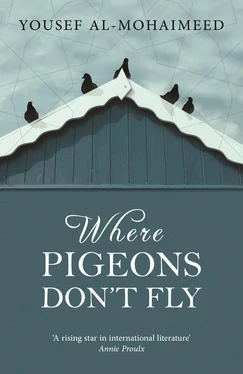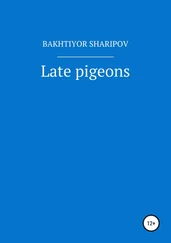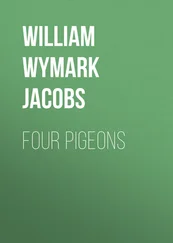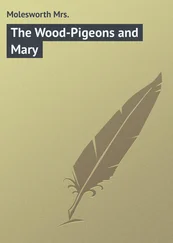The waiter was standing in front of them. Fahd ordered a pipe with apple tobacco and a pot of stewed black tea, and Saeed a coal to replace the one that had turned to ash on top of the tinfoil cover pierced with tiny holes.
‘For my father and his group, there was an abundance of signs to show the Final Hour had come. One of them was that Pharaoh would possess the gold of the earth. Now the doctor’s son and former minister Rashad Pharaoun had invested in the village of Mahd between Jeddah and Medina. There was gold there. The place later became known as Golden Mahd and attracted government money, so of course in their eyes this man was the Pharaoh and was harvesting gold from the earth of the Hejaz. You see how naïve my dad and his group were, Fahd? How they shaped reality to suit their whims until they’d built their ridiculous myth?’
‘Myths. That’s just about right,’ Fahd replied.
Saeed puffed experimentally at his shisha on to which the waiter had placed another two glowing coals.
‘I can never forget my first days, Fahd,’ he went on. ‘Imagine my mother’s womb as a prison inside another prison halfway between Mecca and Medina, where she’d been taken, inside a still larger prison that was the country itself, inside the prison of this hateful planet. Sometimes I’m just speechless. Years before this all took place, my father used to frequent Ruwail Mosque in Bateeha Street. This one time, the man giving the sermon was the Mahdi himself. He used to meet them at Dar al-Ilm behind Amira al-Anoud Palace in Khazan Street. Of course, these guys weren’t Muslim Brothers, or Qutbis, as they were known, the ones who followed the teachings of Hassan al-Banna and rejected the idea of opposing the traditional religious hierarchy; the doves, in other words, as opposed to the hawks who believed in violence and force of arms. So why did my father turn against the authority of the Supreme Imam and take up arms in search of a stolen dream? What did he want? I’ve no idea!’
Saeed was talking, sobbing almost, as they sat in Shalal Café. Amidst the bubbling of the shisha pipes he went on as if speaking to himself. ‘My father threw it all away, success, ambition, a family and a life, and galloped after a mirage dreamt up for him by a diseased mind.’
He turned to Fahd, the beginnings of a small smile taking shape above his small moustache.
‘Know what, Fahd? If he could hear me talk, he’d say you’re the sick one, you’re the one that’s lost, that it’s you who’s galloping aimlessly after your desires. Yeah, and he might be right if he did. I’m fundamentally unhappy with my life, but he’s the one who made it like that. He’s the one who created this future for me. I lived with my mother and my grandmother. While I was learning my first life skills, developing my first view of the world, His Honour was basking in death. For long years my mother wept through nights of loneliness on his account, remembering how he had caused her to go to prison. My mother, who had never clapped eyes on a soldier in her life. My grandmother too. She absolutely loathed him, of course. He had deceived her at the end of her life and got her locked up. She may even have hated my mother and me as well, even though we had nothing to do with the mess.’
‘Saeed,’ Fahd said, ‘You’re doing so well at the moment. You finished your studies and got yourself a respectable job. Isn’t that enough? Thank God for what you have!’
Saeed sipped at the cup of dark brown tea in his right hand while his left gripped the shisha ’s hose, and smiled. ‘Some things are hard to make up for. You lived your whole childhood with your father. You felt secure, in other words. I never had that feeling. A few months later my uncles tried to marry off my mother and a new chapter of my painful life began.’
A Bengali hawker passed by and offered them small bags of pistachios and almonds. Saeed lifted a hand in refusal and went on. ‘You know, Fahd, one of these days I’ll introduce you to a colleague of mine from work. His name’s Rashed. He’s around forty and a real bookworm. He was the first person to encourage me to read up on Islamist groups. My friend, after reading about these guys, I truly wished that my father had been a Sufi. I wish he had been a tablighi . Those extremists think they’re good for nothing but contemplating the world and the possessions that surround them. Some may say that their beliefs are wrong. Well, what’s right then? Brandishing guns in the House of Calm? Killing worshippers, soldiers, women and pigeons? What did my father want? Do you know what they used to say and dream about, because these were essentially people who were driven by confused dreams? They would say that we shall come together in the Grand Mosque and pledge allegiance to the Mahdi and on the third day the infidel army shall set out from Tabuk and God will make the earth swallow them up without us having to kill a single person in the mosque.’
Smiling, and shifting the coal that had settled on the ash-smeared head of the shisha, Fahd said, ‘Just think of it: they really believed that the military base in Tabuk, which for them was the infidel army, was going to move against Mecca to fight them and that God was going to make the earth swallow them up on their way over.’
Saeed let out a short laugh that fought back a tear.
— 7 —
SOMETIMES FAHD FELT SAD to be all alone with no brother, but Saeed’s presence in his life gave it some warmth, especially once they were living together at the flat on the Northern Ring Road in Maseef. Before they lived together Saeed would drop by Fahd’s at least once a week and the two would go out to Shalal Café on Dammam Road, or the Qif in Salah al-Din, having first taken a turn around the wall of the Ministry of Education, stealing delightful glances at the girls who hid their jeans beneath abaya s. Saeed would send a trial balloon towards them, a flirtatious word for the girl to engage with or ignore, then decide whether to try further or give up. Fahd would giggle in embarrassment and keep quiet, sometimes turning round to watch the reaction of the girls they had just flirted with.
Among the girls he hunted down on their jaunts was young Nada, and this despite the fact she was out walking with her brother and sister, the latter becoming a stand-in girlfriend to Fahd. But Saeed soon discovered that she had to climb mountains and descend valleys if he wanted to meet her, as an entire army of relatives was constantly in attendance.
Fahd and Saeed would sometimes agree to meet up at sunset or evening prayers when all the cafés closed their doors, getting together in the lobby of the Salahuddin Hotel. If they were in the mood to revisit childhood memories they would head to the nearby Abu Baseel Restaurant and order two loaves of tames flatbread and a couple of bowls of stewed beans or bean paste.
If Saeed didn’t want to go out he would ask Fahd to bring over fateer from the Damascus Fateer House or hummous with olive oil and falafel from Abu Zaki Hummous, and the two of them would stay up until midnight, when Fahd would make his way home, muzzy-headed and melancholic. Following the death of his father, this happened more than once. He needed something to help him forget what had happened, because the death felt like a betrayal and he was struggling to forgive his father for suddenly vanishing from his life and leaving him all alone with his mother and little sister, Lulua.
Fahd was haunted by the memory of the tortuous evening when his Uncle Saleh had come over bringing with him his son, Yasser, his mother’s brother, Ibrahim, and his two great-uncles on his father’s side. Fahd was sitting in the small majlis whose window looked out over the passage by the side of the house, sprawled out in the light of a green lamp revising his chemistry syllabus. He had grown used to the silence, broken only by the sound of the Bangladeshi who delivered orders from the supermarket, and the moment the doorbell rang he went to open the dining room window and looked down into the street. All he could see was red light from the back of a car stopped next the front door and when he made to go downstairs, a worried Lulua blocked his way.
Читать дальше












